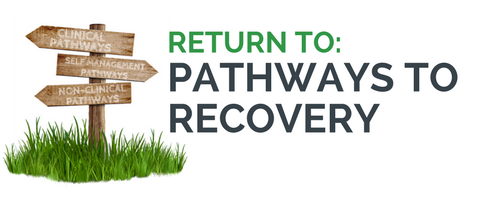
Employment-Based Recovery Services
There are a variety of programs and organizations that fall under the umbrella of employment-based recovery support services.
EMPLOYMENT-BASED RECOVERY SERVICES CAN TAKE SEVERAL FORMS:
- Programs set up to facilitate employment and workforce training for individuals in recovery from substance use disorder
- Programs set up by employers to support current employees in accessing resources and treatment for substance use disorder
- Organizations that have recovery-friendly policies that allow for the employment of individuals in recovery
- Organizations or businesses set up by individuals in recovery that employ other individuals in recovery
Typically offered by large organizations, employee assistance programs (EAPs) are voluntary and confidential programs established to boost employees’ health outcomes and their subjective sense of personal well-being. They may include resources to address health and substance use disorders, intended to benefit both the individuals receiving these services as well as the worksite or company overall.
For individuals in recovery, there may be barriers to obtaining and sustaining gainful employment due to a prior criminal record, negative educational histories, technology illiteracy, gaps in employment history, financial complications, and stigmatization of those with a history of addiction, among other factors. A number of programs and organizations work to address one or more of these factors that bar individuals from gainful employment, whether that be through job coaching, placement, or skill development.
PROMINENT ORGANIZATIONS
WHAT DOES THE SCIENCE SAY ABOUT EMPLOYMENT-BASED RECOVERY SERVICES?
A systematic, rigorous review on workplace interventions to address alcohol problems suggests that individuals receiving these interventions report improved drinking, drinking-related (e.g., increased motivation to reduce drinking), and other health outcomes. Importantly, however, many of the studies had methodological problems (e.g., individuals randomized to the intervention condition did not necessarily receive it or, on the other hand, those randomized to the control condition may have been able to access the intervention). More research is needed to determine optimal strategies to help individuals with substance use disorder in the workplace.
KEY READINGS
- List of Key Readings
-
- Levy Merrick, E. S., Volpe-Vartanian, J., Horgan, C. M., & McCann, B. (2007). Revisiting employee assistance programs and substance use problems in the workplace: Key issues and a research agenda. Psychiatric Services, 58(10), 1262-1264. doi: 10.1176/appi.ps.58.10.1262
- Roman, P. M. & Blum, T. C. (1996). Alcohol: A review of the impact of worksite interventions on health and behavioral outcomes. American Journal of Health Promotion, 11(2), 136-149. doi: 10.4278/0890-1171-11.2.136
- Webb, G., Shakeshaft, A., Sanson-Fisher, R., & Havard, A. (2009). A systematic review of work-place interventions for alcohol-related problems. Addiction, 104(3), 365-377. doi: 10.1111/j.1360-0443.2008.02472.x


